Cornish pasties, Chelsea buns and Melton Mowbray pork pies – just a few examples of British regional delicacies that have hit the big time.
Yet there remains an untapped world of delicious baked goods just waiting to be discovered by consumers outside of their localities. Often hearty, steeped in tradition (even if the origins aren’t entirely known or are, in some cases, contested) and fiercely beloved by regional consumers – they tick a lot of boxes for bakery lovers.
So, what tasty treasures does Britain have hidden away, and which of them have the potential to follow in the footsteps of the bakery greats?
There are some fantastic recipes from across the country that have been handed down from baker to baker
Dawn Foods and Ireks are among the treasure hunters as both suppliers have undertaken campaigns of late seeking to highlight traditional and more unusual recipes from across the UK.
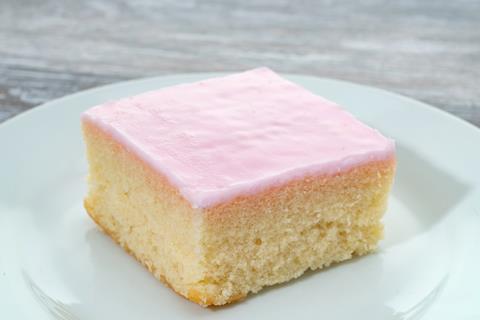
“Reduced travelling brought about by the global pandemic has meant that many of us have had time to focus on what is around us, whether that’s the beautiful rolling countryside, vibrant cities, or the coast, and of course the food heritage that is embedded in our national identity,” says Jacqui Passmore, marketing manager UK and Ireland at Dawn Foods. “This focus has resulted in renewed interest in traditional British bakery as consumers take comfort in their own heritage and roots.
“There are some fantastic recipes, and names too, from across the country that have been handed down from baker to baker, family to family, such as Northumberland singing hinnies, bara brith, Tottenham cake or Yorkshire ginger beer cake.”
Northern delicacies
While Dawn Foods focused on sweet treats as part of its Celebrating Our Nation’s Bakes campaign, Ireks sought out sweet and savoury regional fare.
Some of the baked goods noted by Ireks on its Grand Tour of the UK have stood the test of time, like oven bottom muffins and bloomer loaves, but others are lesser known such as Hawkshead Whigs. Other than that they’re from Cumbria, little is known about the origin of Hawkshead Whigs as these oval-shaped bread dough teacakes have been around since the mid-1700s. They’re made with lard and have caraway seeds added for flavour.
Brown ale stottie cakes were another northern delicacy noted by Ireks. Described as a ‘dense eating’ product, the stottie contains brown ale and are often served with fillings including bacon, egg & sausage and ham & pease pudding. According to Ireks, the term stott means ‘to bounce’ in Northumbrian and refers to the stottie finding its shape when dropped onto the oven bottom.
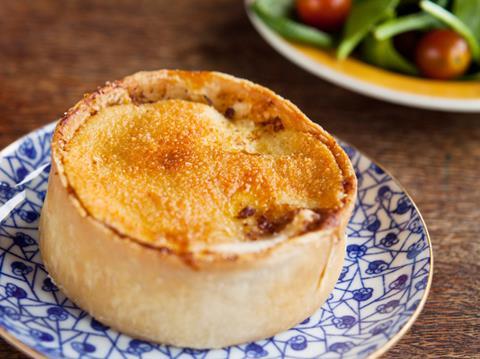
Scotland, like the other nations of Britain, has its fair share of regional delicacies, from the powerhouse that is shortbread to Dundee cake, clootie dumplings, well-fired rolls, butteries (a type of savoury bread roll from Aberdeen), and Scotch pies.
The latter is so beloved north of the border that trade body Scottish Bakers runs the World Championship Scotch Pie Awards annually, with pies submitted by bakers and butchers battling it out for the top prize. In 2022 the top prize was claimed by Brownings the Bakers – the second time the Kilmarnock-based bakery has won.
What’s more, in 2021 online butchers Eat Great Meat found the Scotch pie to be the UK’s most searched for online, with 16.9% of all searches for pies across the UK.
Asda, meanwhile, is also looking to give clootie pudding a boost by adding it to its Christmas range this year. Its version of the traditional steamed pudding is made with vine fruits, candied peel, warming spices and a generous glug of Scotch whisky, all wrapped in a traditional cloth.
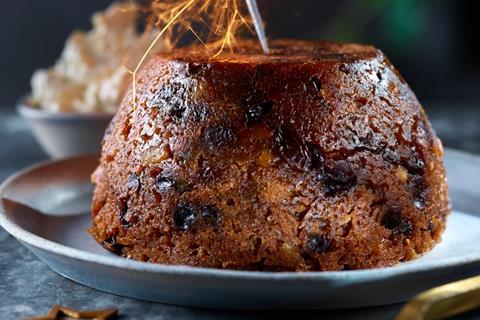
Putting the Welsh in Welsh cake
There’s no doubt about the origins of Welsh cakes – sweet griddle cakes with dried fruit inside. Although there is some discussion about which bakery makes the best ones.
Every baker in Wales will tell you that their Welsh cakes are the best
“Every baker in Wales will tell you that their Welsh cakes are the best,” says Jonathan Brace, director at Brace’s Bakery. “Although the traditional fruited Welsh cakes are what people think of as a Welsh cake, the raspberry jam-filled (non-fruited) cut cake is the major seller.”
Brace’s even invested in a new line for automatically filling the plain cut Welsh cakes in the weeks prior to the pandemic. Commissioning was delayed due to Covid-19 and only one of many varieties (lemon curd) was launched, although this was later withdrawn. But, as Brace declares, “it will be back”.
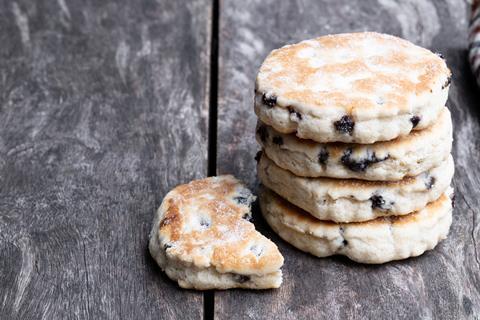
“We are now again on the NPD case and new, filled Welsh cakes will be the order of the day. We believe these products will be able to breach the divide and become a truly national product,” he adds.
However, it’s not all about total domination of the UK market. It can be as simple as ensuring local people have access to locally produced goods, regardless of whether they shop in a supermarket, online or in local bakeries.
Consumers continue to seek out products that have proven provenance and foods made to a regional recipe
As such, Brace believes that regional bakeries will once again have their day as they cater to “regional tastes with the added benefit of reduced road miles and an understanding of how the dynamics works within their areas of operation”, he says. “This will add more colour to the shelves in the supermarkets, allowing them to premiumise the fixture around the national brands, and give a more local feel when going from one part of the UK to another.”
Crafting an opportunity
It’s also an opportunity for craft bakers. Karen Dear, director of operations at the Craft Bakers Association (CBA), points to regional specialities such as the London Cheesecake made by Grouts the Bakers, which has even posted them to past customers outside of London. The sweet puff pastry is filled with almond cream and a dollop of jam topped with icing and desiccated coconut.
Others that can be found across the country include Kentish huffkins (a soft bread roll with a dimple in the middle), and gypsy tart (an indulgent treat made with evaporated milk and muscovado sugar), she notes.
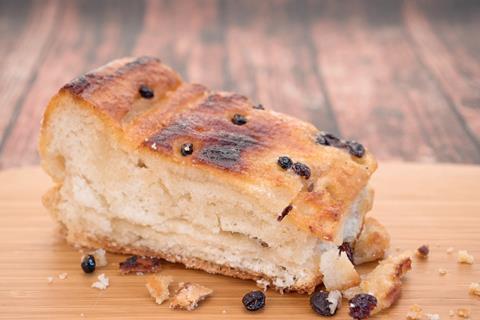
“It is thanks to our bakery members that these regional specialities which go back generations and many more besides, continue to thrive,” Dear believes. “Consumers continue to seek out products that have proven provenance and foods made with local ingredients, as well as those foods made to a regional recipe. Craft bakers therefore have much to offer.”
However, its important for bakers to tell the story of these products so shoppers can easily recognise them and understand the added value. The good news is the use of simple ingredients and provenance are both trends the CBA expects to play out on the market in the long term.
Dialling up the heritage
Heritage and provenance are something Yorkshire bakery Lottie Shaw’s shouts about. Its hero product is Yorkshire parkin – a sticky ginger cake made with flour, oatmeal, black treacle and syrup from scratch using a 100-year-old family recipe in the firm’s bakery.
“Yorkshire heritage is at the heart of our brand. Our county is famed for a range of delicacies and we’re very proud to be championing some of those,” says founder Charlotte Shaw.
“Our most loyal customers tend to be in Yorkshire, but we do have a very high proportion of customers across the rest of the country as well. This is primarily led by Yorkshire-born people who have moved away, who are seeking to educate new friends, families, and partners about some of the traditions from back home – it’s about Yorkshire nostalgia.”
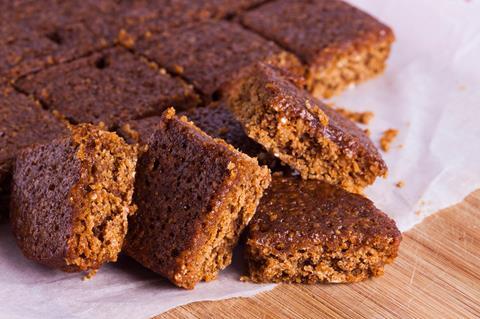
Lottie Shaw’s packaging is adorned with traditional Yorkshire sayings and dialect to really dial up the Yorkshire feel.
While Shaw doesn’t think there are any under-performers in the Yorkshire bakery world that have yet to find success, she does believe more can be done to promote Yorkshire delicacies outside of their homeland. Collaboration with other brands is one option she notes, highlighting
Lottie Shaw’s fruit cakes which have been made with Stoodley Stout from the Little Valley Brewery in West Yorkshire, and sloe gin from Sloemotion in York. Innovating to bring new variations of current favourites, such as twists on flavours or formats to entice new consumers, is another way.
It seems like open-minded consumers could be sinking their teeth into hidden British treasures in no time.
ADVERTISEMENT: DAWN FOODS
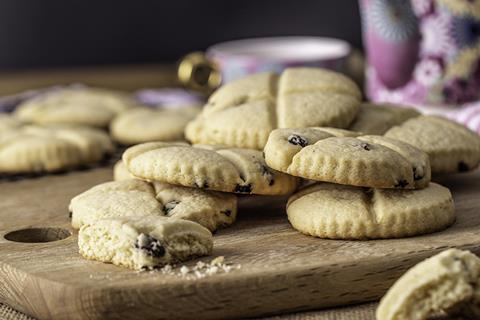
Recipe: Shropshire Soul Cakes
Although called a cake, Shropshire Soul Cakes are more like spiced shortbread biscuits. Traditionally they were baked for All Souls Day (the day after Halloween), and were given out to poor children who went door to door in an early form of ‘Trick or Treating’, offering to sing and pray “for the souls of the givers and their friends”. They would sing “A soul-cake, a soul-cake, please good missus, a soul-cake”. Each cake eaten supposedly represented a saved soul.
Ingredients
- 1000g Dawn Shortcrust Mix
- 14g Dawn Baking Powder Superswift
- 400g Softened butter
- 150g Whole egg
- 12g Dawn Bun Spice Flavour
- 70g Raisins / sultanas
Directions
- Add the Shortcrust Pastry Mix and baking powder to a mixing bowl fitted with a beater and blend on slow speed for 30 seconds
- Add the softened butter, whole egg and Bun Spice Flavour and mix on slow speed until a soft dough has formed
- Add the raisins / sultanas and mix in on slow until fully distributed
- Pin out on a floured surface to 1cm thick
- Cut out using a 6cm fluted cutter
- Place onto a baking sheet
- Score the top of each biscuit with a cross, using a flat edge (scraper, pallet knife, knife)
- Bake in a deck oven at 180ºC for 15-20 minutes



















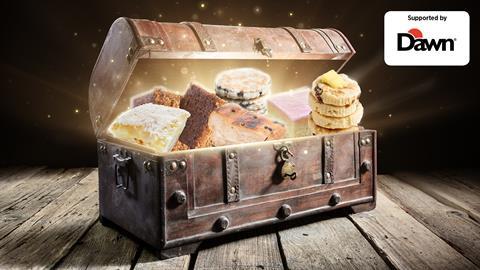


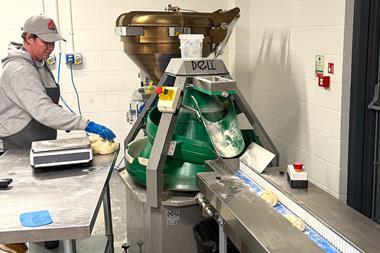
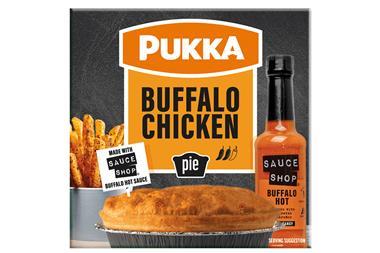

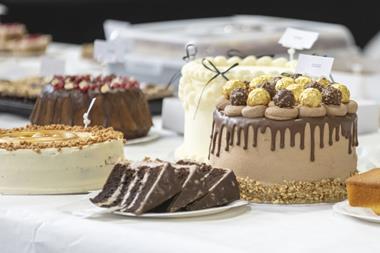

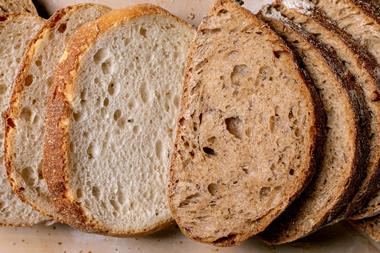





No comments yet